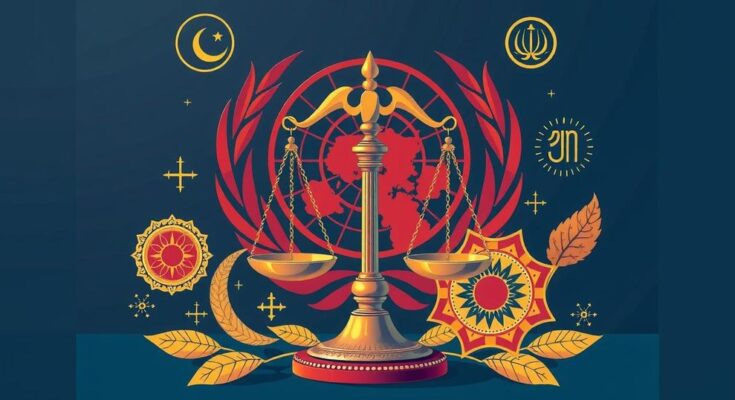In a bold move, the UN Human Rights Council has condemned Iran’s ongoing human rights violations, notably the systematic persecution of the Bahá’ís. With 24 votes in favour, the resolution robustly extends the mandate of the UN Special Rapporteur, renewing the call for an Independent International Fact-Finding Mission. The scope now encompasses all human rights violations in Iran, beyond just the uprisings of 2022, highlighting the urgent outcry from the international community regarding the treatment of ethno-religious minorities.
The resolution addresses discrimination, arbitrary detentions, and violations against recognised and unrecognised religious minority groups, particularly underscoring the plight of the Bahá’í community. It calls for Iran to end the oppression of these groups and acknowledges the specific hardships faced by women and girls, denoting this ongoing civil plight as crimes against humanity in the context of systemic discrimination.
Amidst global concern, the session included remarks from representatives of several countries, including Brazil, the UK, and Ireland, who underscored the increased targeting of Bahá’ís and advocated for their rights. They spotlighted actions against women and human rights defenders, reinforcing the necessity for international solidarity in the face of such human rights abuses.
As outlined in the reports of Special Rapporteurs, atrocities against the Bahá’ís include arbitrary arrests, repression in education, and economic exclusion from professional environments, where legal frameworks prevent them from securing jobs in public sectors. Women have been increasingly vulnerable, facing dual persecution based on both gender and religious beliefs.
There were strong denunciations regarding Iran’s misrepresentation of its policies, particularly concerning burial rights for Bahá’ís. The Special Rapporteur on freedom of religion highlighted systemic discrimination spanning decades, with hundreds of Bahá’í cemeteries either destroyed or rendered unusable. Misleading claims of equitable access to burial sites were firmly rebutted, showcasing the depth of injustice faced by the Bahá’í community and reinforcing the council’s call for accountability and protection.
Both reports converge on the theme of urgent international accountability. They illuminate Iran’s persistent denial of civil liberties for Bahá’ís and the dire need for legal frameworks that will protect minority rights while urging the global community to respond decisively against this growing crisis in human rights violations.
The UN Human Rights Council has reinforced its condemnations of Iran’s human rights abuses, particularly against the Bahá’í community, by extending the mandate of the UN Special Rapporteur and the Independent International Fact-Finding Mission. The latest resolution reflects global concerns over systematic discrimination and calls for immediate action to stop violations against religious minorities in Iran. Representatives from various nations voiced support for the rights of Bahá’ís and other marginalized groups, stressing the need for international accountability and protection.
The UN Human Rights Council’s resolution reflects an intensified global commitment to addressing Iran’s grave human rights violations, particularly the persecution of the Bahá’í community. By extending the authority of crucial mandates and spotlighting systemic discrimination, the resolution calls for a cessation of oppression while unifying international condemnation of Iran’s actions. The alarming trend of targeted persecution, especially against women, highlights the urgent need for sustained advocacy and accountability.
Original Source: www.scoop.co.nz



